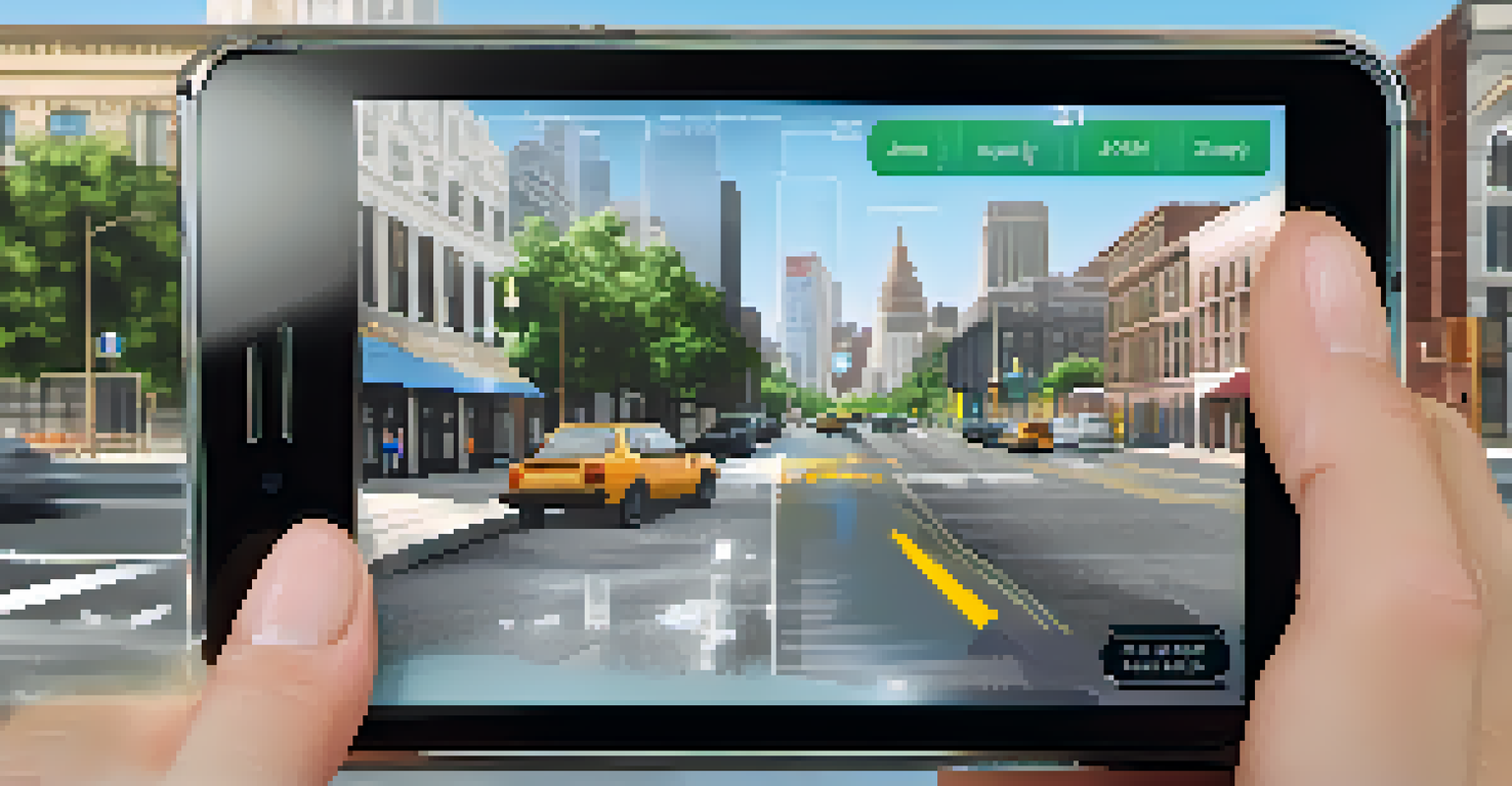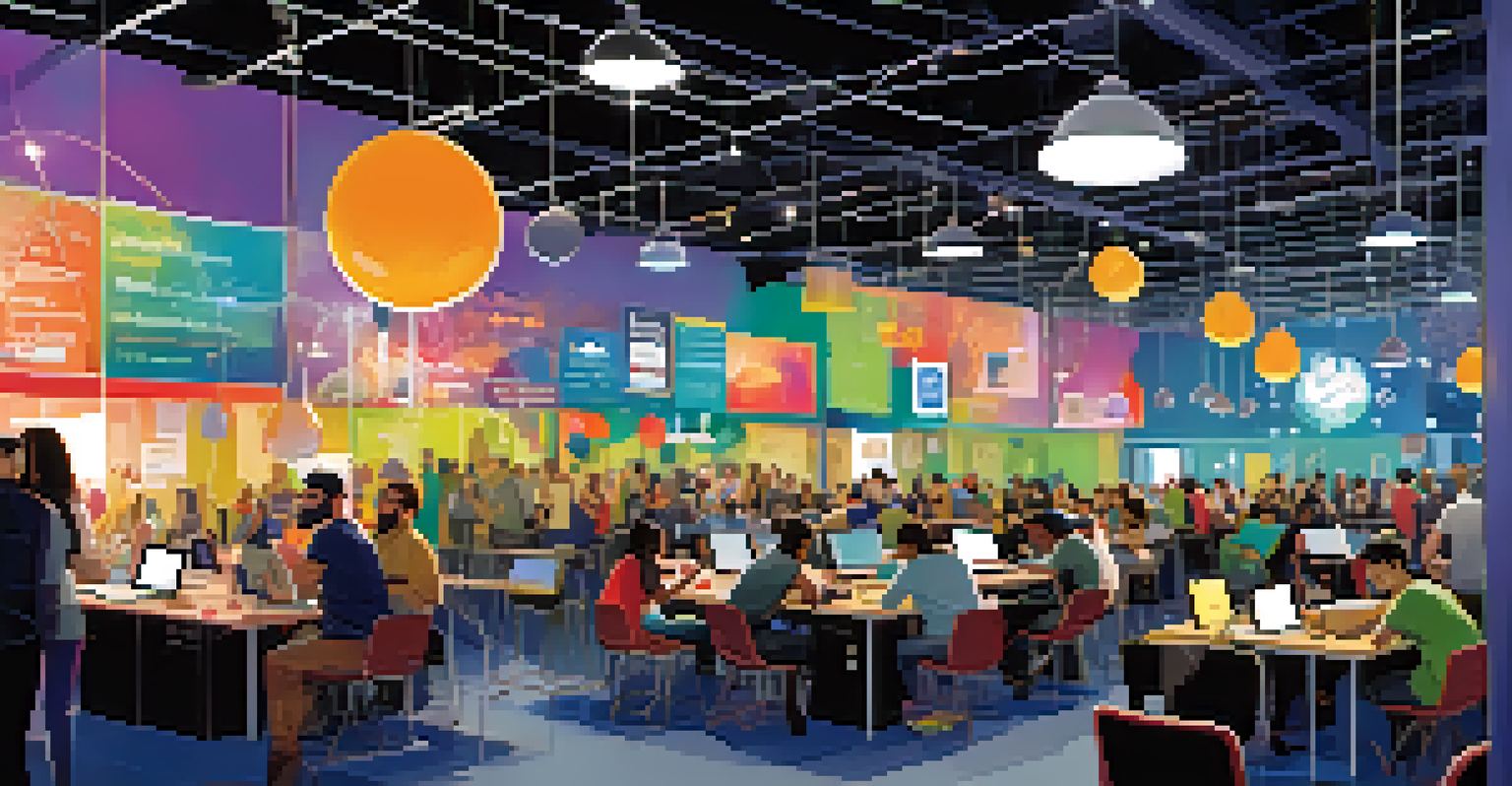Case Studies: Successful Civic Tech Projects in Austin

Introduction to Civic Tech in Austin
Civic tech refers to the use of technology to enhance civic engagement and improve public services. In Austin, this movement has gained traction, fostering a collaborative environment between citizens, local government, and tech innovators. With a vibrant tech scene, Austin serves as a perfect backdrop for civic tech initiatives that address community needs and promote transparency.
Technology is best when it brings people together.
In recent years, various projects have emerged, showcasing how technology can bridge the gap between residents and their government. These initiatives not only streamline processes but also encourage participation from marginalized communities. As we explore these success stories, it becomes clear that civic tech is reshaping how Austinites interact with their city.
From enhancing public safety to improving local services, Austin's civic tech projects are making a tangible difference. This article dives into some standout examples that highlight innovation, community involvement, and the potential for positive change.
Case Study: Austin 311 App Enhances Citizen Reporting
The Austin 311 app is a prime example of how technology can empower citizens. Launched to streamline communication between residents and local government, the app allows users to report issues like potholes, graffiti, and noise complaints directly from their smartphones. This immediacy not only makes reporting easier but also fosters a sense of community ownership.

With features like real-time tracking and updates, residents can monitor the status of their reports, leading to greater transparency and accountability. The app has seen significant adoption, proving that when citizens are equipped with the right tools, they are more likely to engage in civic matters. It's a win-win for residents and city officials alike.
Civic Tech Empowers Austin Residents
Civic tech initiatives in Austin, like the 311 app, enhance citizen engagement by making it easier to report issues and access local services.
Moreover, the data collected through the app helps the city identify trends and allocate resources more effectively. This blend of technology and community input ultimately leads to a cleaner, safer, and more responsive Austin.
Project: Open Austin and Community Collaboration
Open Austin is a local initiative that aims to foster collaboration between civic tech enthusiasts and the city. By organizing hackathons and community meetups, Open Austin creates a platform for developers and citizens to co-create solutions to pressing urban challenges. This grassroots approach ensures that the voices of the community are heard in the tech development process.
Civic engagement is not just about voting; it’s about being part of the conversation.
One notable project that emerged from Open Austin is the 'Austin Public Health' dashboard, which provides vital health information to residents. This user-friendly tool enables citizens to access data on public health issues, vaccination rates, and resources available in their neighborhoods. It exemplifies how civic tech can enhance public awareness and promote healthier communities.
Through initiatives like Open Austin, we see how collaboration can harness local talent and insights, driving innovation in civic tech. This community-centered approach not only empowers developers but also builds trust between residents and their local government.
The Impact of Data Austin on Local Governance
Data Austin is an initiative that emphasizes the importance of open data in improving city governance. By making datasets publicly available, the city encourages transparency and allows residents to engage with their government in meaningful ways. This access to information empowers citizens to hold officials accountable and advocate for better services.
One of the key outcomes of Data Austin is the development of various applications that utilize city data for public benefit. For instance, a transportation app that analyzes traffic patterns helps residents make informed decisions about their commutes. This not only improves individual experiences but also contributes to broader urban planning efforts.
Collaboration Drives Innovation
Projects such as Open Austin demonstrate how community collaboration can lead to innovative solutions addressing urban challenges.
Ultimately, Data Austin illustrates the transformative power of open data in fostering an informed and engaged citizenry. By equipping residents with the information they need, the city strengthens the relationship between citizens and their local government.
Success Story: Code for America’s Austin Brigade
Code for America’s Austin Brigade is a volunteer-led group dedicated to using technology for social good. The brigade works closely with local government and community organizations to develop solutions that address specific local challenges. Their motto, 'We are volunteers who believe in the power of technology to improve our communities,' truly encapsulates their mission.
One impactful project from the brigade is the 'Austin Housing Data' tool, which provides residents with crucial information about affordable housing options. By visualizing data on housing availability, the tool empowers citizens to make informed decisions about where to live. This project reflects a growing awareness of housing issues and the need for accessible information.
Through initiatives like the Austin Brigade, we see the potential for civic tech to foster collaboration and innovation. These grassroots efforts not only enhance local governance but also inspire residents to take an active role in shaping their communities.
Civic Engagement: The Role of Social Media
Social media plays a vital role in civic tech by facilitating communication and engagement between residents and government officials. Platforms like Twitter and Facebook have become essential tools for civic engagement, allowing citizens to voice their concerns and participate in discussions. In Austin, social media campaigns have successfully increased awareness around various civic initiatives.
For example, the #ATXTraffic campaign utilized social media to gather feedback on traffic issues in the city. Residents shared their experiences and suggestions, leading to productive dialogue between the community and city planners. This kind of engagement highlights the importance of leveraging social media as a tool for civic participation.
Open Data Enhances Governance
Initiatives like Data Austin promote transparency and accountability in local governance through accessible public datasets.
Ultimately, social media complements traditional civic tech projects by providing an immediate and accessible platform for communication. As residents continue to engage online, the potential for enhanced civic participation grows, making it easier for everyone to contribute to their community.
Future of Civic Tech in Austin: Challenges and Opportunities
As civic tech continues to evolve in Austin, several challenges and opportunities lie ahead. One significant challenge is ensuring equitable access to technology for all residents. While many citizens benefit from digital tools, others may lack the resources or knowledge to participate fully. Addressing these disparities will be crucial for the future success of civic tech initiatives.
On the flip side, the growing interest in civic tech presents exciting opportunities for innovation and collaboration. With more developers and organizations getting involved, we can expect to see new tools and projects that address a wider range of community needs. This influx of creativity can lead to solutions that are more effective and responsive.

As Austin embraces the future of civic tech, the emphasis on inclusivity and collaboration will play a pivotal role in shaping the landscape. By prioritizing these values, the city can ensure that all residents have a voice in the ongoing conversation about their community.
Conclusion: The Bright Future of Civic Tech in Austin
In conclusion, Austin's civic tech projects showcase the power of technology to enhance community engagement and improve local governance. From the Austin 311 app to initiatives like Open Austin and Code for America’s Brigade, these examples highlight how innovation can drive positive change. The collaborative spirit of the city encourages residents to actively participate in shaping their community.
As we look to the future, the importance of inclusivity and equitable access to technology cannot be overstated. Ensuring that all citizens can engage with civic tech will be essential for continued success. By fostering a culture of collaboration, Austin can lead the way in demonstrating the impact of civic technology on urban life.
With ongoing commitment and creativity, the future of civic tech in Austin is bright. As more residents come together to tackle challenges and create solutions, we can anticipate a city that is not only more connected but also more responsive to the needs of its citizens.